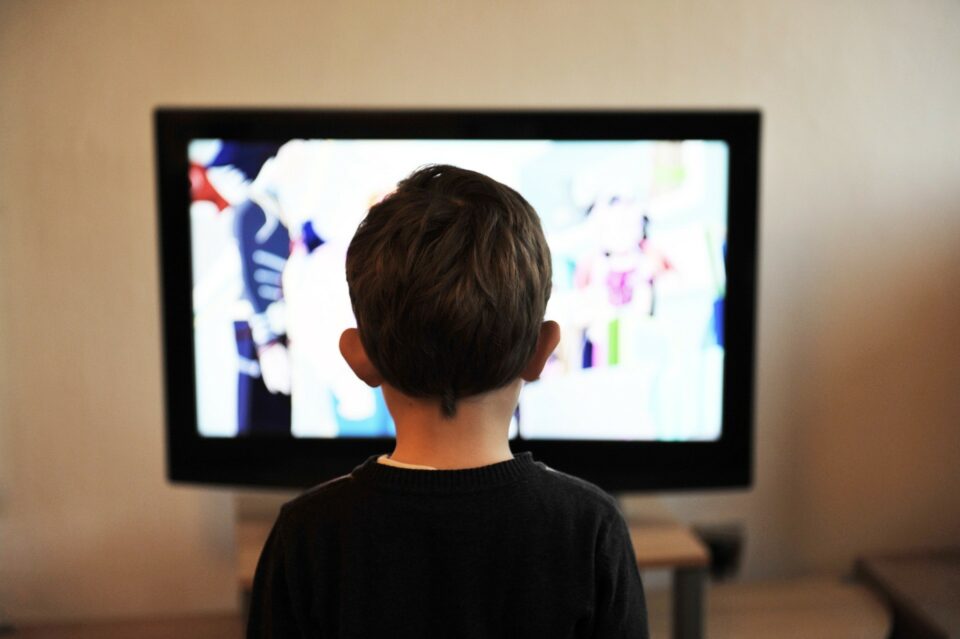We all want the best for our children, and we want them to learn and grow in line with their developmental milestones. Of course, if they can exceed them that’s great, but at the very least, meeting these milestones is of vital importance for their future.
A child isn’t born knowing how to talk, and that means they need to learn language from scratch. Not only do they need to learn the language itself, but they need to actually learn how to talk, i.e. forming words with their mouth and using sounds to form letters and words, finally moving onto sentences.
The answer to the question of why is verbal communication important in childcare should therefore be glaringly obvious. How can a child be expected to learn how to speak and to expand their vocabulary as they learn, if they’re not immersed in verbal communication and language in the first place? It’s important to speak your child as a newborn and as they grow into infants. By doing this, you’re allowing them to soak up knowledge like a sponge. You would be amazed at how quickly a child can learn to form a sound with their mouth by watching you and listening to the sound coming out of your mouth.
If a child isn’t immersed in verbal language, they will fail to hit their milestones in terms of communication. They will probably be delayed in saying their first words and all behind their peers very quickly when the start school. They will then be constantly playing catch up throughout their school years, and this will hold back their education quite severely.
For these very reasons, verbal communication in childcare is vitally important.
Verbal Communication From Various Sources
There are a few other reasons why verbal communication is important in childcare. Firstly, a child is going to be spoken to by their parents from the moment they are born, and whilst they are in the womb too. They will learn to recognise their voices and this helps them to feel calm and at peace in their home setting. When a new individual enters the home, e.g. a nanny, it’s completely normal for the child to feel a little shy or even worried, because they don’t know this person!
By using calming and reassuring words, the nanny can win the trust of the child, and from there the relationship between child and nanny will be allowed to flourish, helping the child to feel comfortable in their presence and also helping them to develop and hit their milestones with ease.
Secondly, if your child is only ever subjected to verbal communication from you, i.e. their parents, they will probably fail to understand different accents and different words. This actually stunts their development because you’re not opening up their experiences beyond the home setting. Listening and speaking to other people helps your child to develop trust and social skills, but it also helps them to develop their vocabulary and their speaking ability in the first place. The more they are subjected to different voices, different accents, and different words, the greater their ability to use their own verbal communication as they grow.
Different Ways to Encourage Verbal Communication
We have covered why is verbal communication important in childcare, but it’s not always about simply sitting and having a conversation. We know that children have quite limited attention spans, especially when something they deem to be more interesting is happening somewhere else! With that in mind, it’s important to know a few hints and tips which can be used to encourage verbal communication and also help the child to soak up as much knowledge as possible, piquing their curiosity.
Try these few suggestions and see what their child’s reaction is.
Identify Their Interests
You can easily find out what a child is interested in by observing them and their reactions to games and characters. Once you’ve done that, use that knowledge to talk to the child and try and encourage them to do the same back. For instance, if you know the child likes cars, find a toy car and show it to them, talking about the colour of it, how it has four doors, it has four wheels and that the wheels make the car go very fast. You can use any subject, but make sure that it is something the child is particularly interested in, otherwise they’re more likely to wander off and find something more interesting somewhere else!
Talk Slowly And Level Yourself
It’s important not to talk down a child, i.e. don’t stand up and look down whilst talking to them. This isn’t going to encourage them to talk and may make them feel like you’re actually telling them off. Crouch down to their level and talk slowly, making sure that you enunciate your words so he or she can understand them. It can be difficult for young children to understand particularly strong accents at a young age, so bear this in mind. You could also make sure you make eye contact, to show them that you’re talking only to them.
Wait For Them to Respond to You
Remember that the child may need a little time to respond to you, because they’re processing what you’ve said and trying to make sense of it. It can be frustrating because you know the words and it’s easy to forget that they don’t! If they respond to you in a non-verbal way, e.g. a nod or a shake of the head, try and encourage them to say ‘yes’ or ‘no’ instead, by asking another question.
Don’t Jump on Their Mistakes
It’s highly likely that the child is going to make mistakes with pronouncing words but it’s important not to jump straight onto them and point them out. This could stunt their confidence and make them stop saying that word, especially if they are a particularly shy child. Instead, repeat the word in a sentence and say it correctly, so pull their attention to it. For instance, if a child says “cag” when he or she points to a picture of a cat, instead of painting out the mistake, say something like “yes, that’s a cat”.
Activities to Encourage Verbal Communication in Childcare
Aside from the tips we’ve just talked about, highlighting why is verbal communication important in childcare, it’s a good idea to have a few specific activities planned, which are aimed towards encouraging communication between you and the child. The key thing to remember with these ideas is that they need to be fun, so most of them include props or toys, which help the child to see verbal communication as more than just words, but as sounds which change in tone too.
A few activities to try include:
- Making sounds into different shapes or containers – Empty toilet rolls are ideal for this, but you could use any type of object with two open ends. You would then speak into the object and let the child see how your voice sounds different, encouraging them to do the same.
- Listening back to tape recordings – Record your voice on a tablet or an old fashioned tape machine and then listen back to the words with the child. It’s fun to see how voices sound different when they have been recorded. You may also be able to download an app which distorts the voice, i.e. makes it high pitched and funny.
- Asking what sound an animal makes – Take some animal flashcards and ask the child what sound the animal makes.
- Naming colours and body parts – All you need to do here is point to a body part and ask the child what it is. If they don’t know or are too young to have learnt just yet, you can say it first and ask them to repeat it. You could do the same with colour cards too.
- Puppet shows – A great way to encourage verbal communication but also to encourage conversation is to have a puppet conversation or show. You would use a fun voice whilst using the puppet and direct it towards the child’s puppet, would then respond. You simply need to ask simple questions which encourage the child to continue the conversation onwards.
Encouraging a child to use verbal communication is an important step in their overall development and it is important that you open them up to as many different voices and words as possible, in order to help them grow. The people they have around them in terms their childcare are ideal for helping to develop communication skills. Playing games, encouraging conversation, and simple naming activities are all fantastic tools which can encourage verbal communication back and forth.
From there, your child will develop their vocabulary and their confidence, helping them to develop the skills and the knowledge they need when to begin their schooling education. Giving them a head start in their early years is never a bad thing and in terms of why is verbal communication important in childcare, that is probably the biggest reason of them all.




